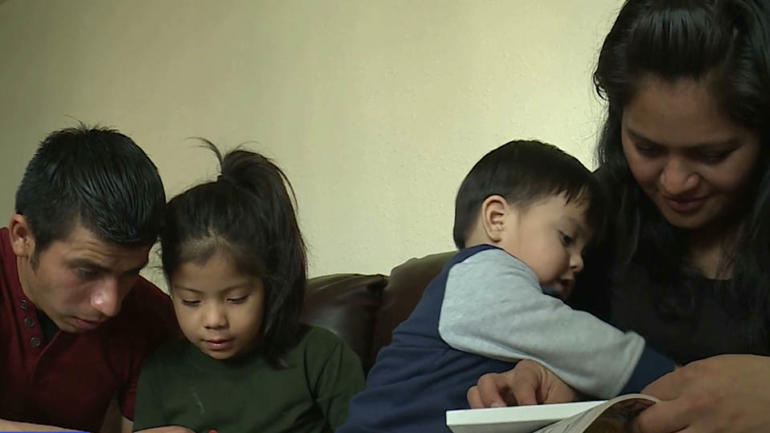Last year, thousands of children were separated from their parents and detained by authorities after crossing the U.S.-Mexico border under the Trump administration’s “zero tolerance” immigration policy.
Amid a public outcry, President Trump later ended the practice and a federal court ordered the families to be reunited.
But six months on, some children are still showing signs of psychological trauma.
CGTN’s Giles Gibson met with a family from Guatemala, to hear about their experience.
Marielcy looks like any other six-year-old girl.
But after fleeing Guatemala and crossing into the U.S. with her father last year, she witnessed the “zero tolerance policy” up close.
Her father, Jorge Ezequias, remembers the exact moment when the authorities took her away from him.
“My daughter came over, started to cry and said, “Daddy, Daddy, don’t leave me! Why are you doing this to me, Daddy ! Then they grabbed her and they tried to take her inside, but she tried to stop them. She put her legs up on the doorframe so that she wouldn’t go through,” said Jorge Ezequias, a U.S. asylum seeker.
Jorge’s wife Dania and their son crossed the border separately and weren’t split up.
But it was two full months before the family was reunited.
Organizations focused on protecting migrants say child separation is still going on – though the administration maintains it now happens only when the adults involved are tied to crimes or gang activity.
“My colleagues who are representing children are still seeing children and still finding out that these are children who are separated, and nobody has notified the child about where the parent is, the attorney is never notified that this is a separated child. So the crisis is not over. And I think we need to be very vigilant with this administration, particularly because they’ve had this systematic attack on asylum seekers,” said Jennifer Podkul a Senior Director for Policy and Advocacy at KIND.
The Ezequias family is now claiming asylum, stuck in legal limbo until their case can be heard in the backed-up courts.
Marielcy is learning English and proudly shows off the words for colors that she’s picked up at school.
But her father says her experiences in detention facilities still haunt her.
“Sometimes when ambulances go past, she runs over to me and says, ‘Daddy, hold me so they don’t take me away!’ And I say to her: ‘My daughter, it’s ok, nothing’s going to happen to you,” said Jorge Ezequias, a U.S. asylum seeker.
 CGTN America
CGTN America
